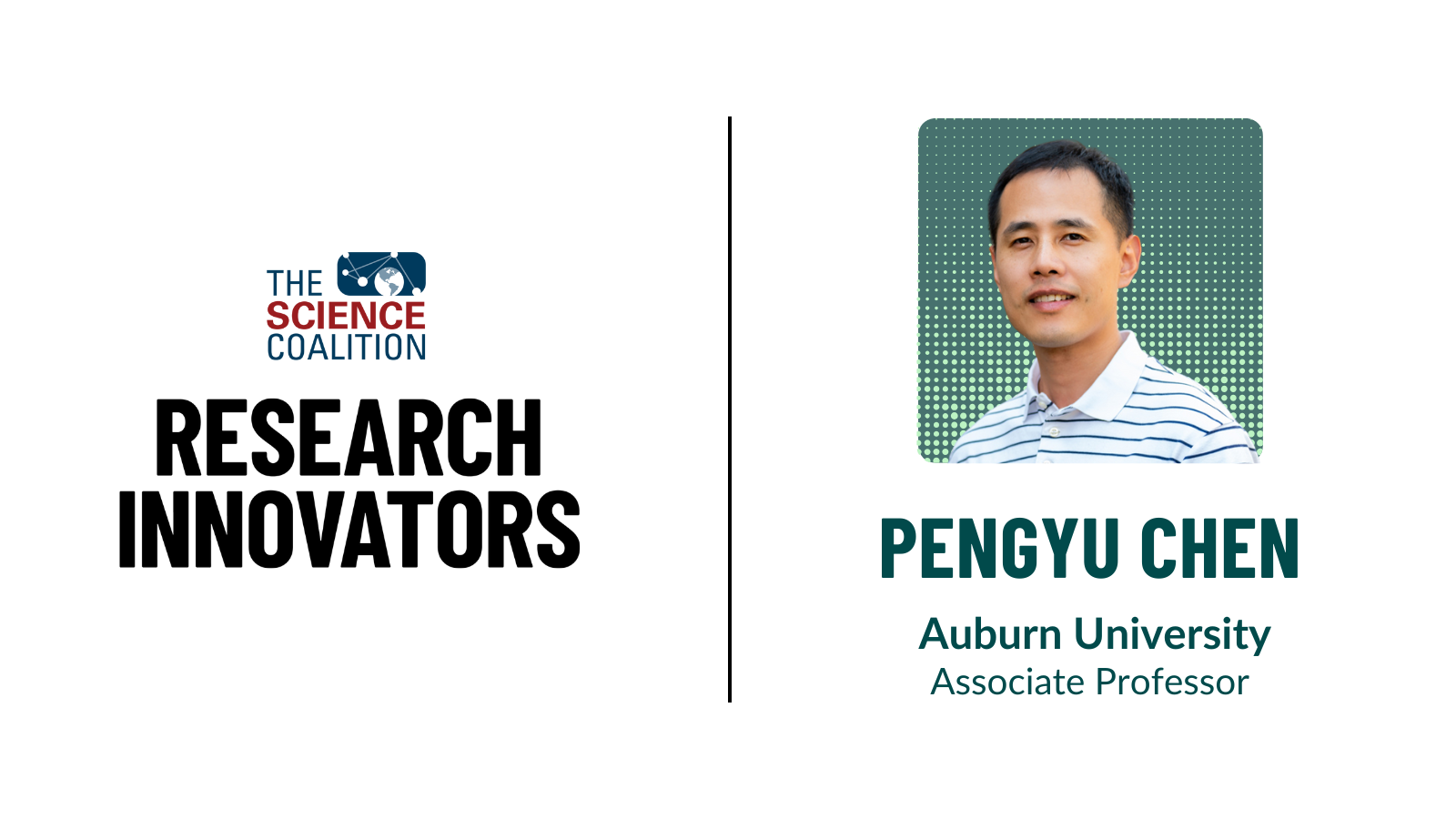 Dr. Pengyu Chen: Developing Nanomaterials to Transform Medicine
Dr. Pengyu Chen: Developing Nanomaterials to Transform Medicine
What does a career in cutting-edge biosensor research look like? For nearly two decades, Auburn University’s Dr. Pengyu Chen has been at the forefront, shaping the future of medical diagnostics through innovative nanomaterials, whose small size – ranging from one-thousandth to one-hundred-thousandth the thickness of a sheet of paper – offers a wide range of potential applications in biomedicine, including diagnosis, treatment, and prevention of many diseases.
Dr. Chen’s journey began with an undergraduate degree in materials science engineering, followed by a PhD at Clemson University, where he specialized in developing nanoparticles for medical applications. After earning his doctorate in 2012, Dr. Chen deepened his expertise as a postdoctoral fellow at the University of Michigan from 2013 to 2016, where he explored how materials science could transform medical diagnostics.
Since joining Auburn University nearly nine years ago, Dr. Chen has led a pioneering research group focused on advanced biosensors and diagnostic technologies to help improve the detection and treatment of several medical conditions. His team harnesses the unique properties of nanoparticles to rapidly and accurately detect disease markers at the point of care — an effort that wouldn’t be possible without federal investments in his team’s research, including a National Science Foundation (NSF) CAREER award and multiple National Institute of Health (NIH) grants.
A Life-Changing Case: Rapid Diagnostics for Pediatric Leukemia
A striking example of Dr. Chen’s research in action occurred during his second year as a postdoctoral fellow at the University of Michigan. Just before Christmas, Dr. Chen was called to consult on the case of a six-year-old girl with leukemia undergoing experimental immunotherapy — a promising treatment that, in her case, led to severe side effects requiring immediate medical intervention.
That morning, Dr. Chen received the patient’s blood sample. Using a biosensor device his lab had developed with support from NIH and NSF, he quickly analyzed the sample and unlocked important data about proteins in the patient’s blood that helped the clinical team better treat the child’s condition. Traditional blood detection methods for proteins typically take two to three days, but Dr. Chen’s remarkable breakthrough helped speed up the screening effort by leaps and bounds — a tremendous achievement that enabled doctors to quickly enhance the patient’s treatment with an immunoprotein. By the end of the day, the young patient experienced a dramatic improvement and was able to leave the Pediatric Intensive Care Unit and celebrate Christmas at home with her family.
Dr. Chen’s powerful example demonstrates how federally funded scientific research can be translated into life-saving clinical solutions, bridging the gap between laboratory innovation and patient care.
The Importance of Federal Funding
Federal funding from agencies like NSF and NIH are essential to Dr. Chen’s success. These resources support the basic scientific research that leads to breakthroughs like new blood detection methods, which can help improve treatment for cancer patients.
At Auburn, Dr. Chen continues to develop next-generation diagnostic tools and mentor future leaders in the field. His journey underscores the power of federal investments in basic scientific research, which drive medical breakthroughs that improve treatments for a wide range of conditions, save lives, and help Americans live healthier, happier lives.

